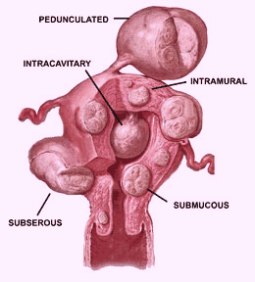There are several reasons why women may have a heavy menstrual flow or menorrhagia and identifying the reasons for this is also an indicator on how it may be treated.
Menorrhagia, which by definition is excessive menstrual bleeding, may be identified if a woman requires to change sanitary protection hourly, has to use extra or double protection, has the kind of heavy flow that impedes normal day to day activities and even requires sanitary changes in the middle of the night, has periods that extend longer than the normal 5 days, and frequently passes large blood clots.
Though causes of Menorrhagia are not fully clear, they are generally understood to be as follows:
Menorrhagia due to Estrogen Dominance: When there is an excess amount of the hormone estrogen found, this may well be the reason that causes Menorrhagia.
Estrogen is responsible for building of the uterine lining that is shed every month and an excess of estrogen may mean that excess endometrial tissue is formed.
Here it becomes important to reduce exposure of Xenoestrogens which are chemicals not naturally occurring within the body or in nature; but are manmade and are found in things ranging from plastics, to pesticides to shampoo!
The intake of plants rich in phytoestrogens may or may not be indicated since opinion is divided on this issue: whereas many say that symptoms worsen others claim that phytoestrogens can have a beneficial effect on estrogen dominance.
Excessive Bleeding Caused by Vitamin K: Vitamin K is what is responsible for blood clotting and when deficiency of this vitamin is responsible for Menorrhagia, the menstrual blood will seem thinner and not prone to clotting.
You can gauge is it is this deficiency that is causing the bleeding, if you also have the tendency to bleed more than normal from common cuts and wounds. Certain vegetables, probiotic bacteria such as those found in yoghurt can help with this.
A vitamin K supplement however should always be taken under medical supervision. Sometimes blood thinning medications that you are taking could be the cause of Menorrhagia.
Thyroid Problems: Thyroid gland malfunctioning may also be the cause of excessive menstrual bleeding and if the root cause of the thyroid problem is solved, then the excessive bleeding may well take care of itself.
Sanitary Protection: Sometimes it could be the kind of sanitary towels of tampons you use that could be causing an allergic reaction or act as an irritant and changing to use of cloth or menstrual cups may ease the problem.







nice blog, complete information about women health
I’m 21yrs old and have excessive bleeding during menstruation.I also have had it leak into my clothing. This is quite embarrassing for me.i have tried so many methods but no use. I’m going to see if these remedies works!